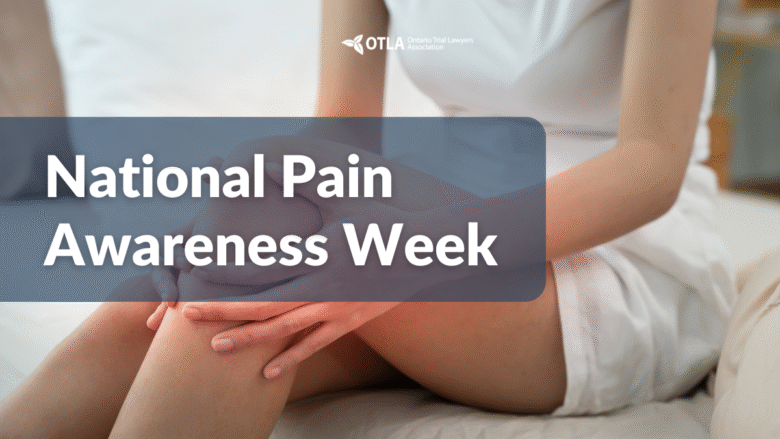Chronic pain doesn’t just live in the body. Its effects echo through families, friendships and communities. Though it’s an issue often invisible to others, its effect is profound. But so is the strength of those who live with it daily, proving courage and strength are sometimes simply getting up each day and trying again.
November 2 to 8, 2025 is National Pain Awareness Week in Canada, a time to raise awareness about chronic pain and how it impacts the lives of so many Canadians. Right now, over 8 million Canadians live with chronic pain.
Chronic pain is pain that stays with you longer than the expected time for an injury or illness to heal, generally lasting longer than three months (sometimes much longer) and in some cases that pain is a lifelong unwanted companion. This unwanted companion can change how it presents – appearing in one place today and another location on the body tomorrow. It can feel like electric shock at one time, a burning-searing pain another or any number of other ways. It often is invisible and can’t be seen on testing, such as X-ray, MRI, CT scans or other tests, but it is no less real.
Chronic pain is also very personal to the individual dealing with it in how they experience that pain and often is not limited to experiencing ‘hurt’ only after some kind of ‘harm.’ It will often affect most, if not all other aspects of their life, including their physical, mental and emotional well-being, as well as the relationships that person has (both personal and professional). Because of this, it is often impairing – and may impair the ability to carry on with normal activities in or around the home, at work or socially and recreationally with family and friends as well.
During this week of awareness, understanding that chronic pain is not ‘just in the person’s head’, but is real, can help to not only validate the experiences of those who live with it, and reduce the stigma that goes with it, but also to enable better support systems for those people.
Awareness can drive changes in healthcare policy and funding, and drive research initiatives to help those living with this problem. Understanding the scope and reach of this condition, and how pervasively and without discrimination it affects so many Canadians, can help to highlight it to drive research and innovation.
The Ontario Trial Lawyers Associations’ (OTLA) members represent injured plaintiffs throughout Ontario, many of whom endure chronic pain as a result of traumatic injuries or serious illness. We understand the difficulties faced by those living with this condition.
It’s been said that courage is not the absence of fear, but the determination to move forward despite it. To everyone living with chronic pain, those who rise each day and persevere through adversity, and continue to embrace life as best they can, OTLA recognizes your strength and stands with you.

